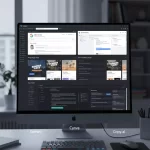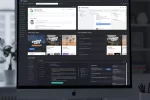Freelancer Money Tips, Budgeting Hacks, Smart Finances
Smart Budgeting for Freelancers is a big challenge but freelancers face a big question; how do you manage income that varies month to month and make smart finances stick? In 2024–2025, about 63% of freelancers report income fluctuations of over 30% monthly—making budgeting essential. This guide is packed with Smart Budgeting for Freelancers money tips, budgeting hacks, and expert strategies to help you earn more and save more, even when rates dip.
Why Smart Finances Matter for Freelancers
- Income Volatility Challenge
Freelancers often hit feast-or-famine cycles. With payment delays and fluctuating projects, it’s vital to plan ahead.
- Benefits of Budgeting and Planning
By budgeting smartly, you reduce stress, avoid debt, and free up cash for investments. You also build credibility with clients when finances are managed.
Top Freelancer Money Tips for Income Management
- Track every project and invoice: Use spreadsheets or software to monitor due dates and payments.
- Use separate business accounts: Maintain a clear distinction between personal and business finances to simplify taxes.
- Set aside taxes and retirement: Aim to allocate 25–30% of income for self-employment taxes and another 10–15% for retirement savings.
Tip: Pay yourself a salary from business revenue before paying bills.
Budgeting Hacks for Variable Income
- Calculate average & bare-bones budgets
Take your past 6-month earnings, find the average, and compare to your minimum expenses—this becomes your safety net.
- Use “buffer” or sinking fund method
Create funds for slow months, taxes, software renewal, or marketing. Contribute a portion monthly.
- Automate savings and expenses
Use auto-transfers to pay yourself first, saving before spending.
Tools & Apps to Streamline Smart Finances
Smart Budgeting for Freelancers
| Purpose | Tool / App | Freelance Features |
| Invoicing & Bookkeeping | QuickBooks Self-Employed, FreshBooks | Mileage tracking, tax prep |
| Budgeting & Tracking | YNAB, Plutio, HoneyBook | Custom budget categories |
| Savings & Automation | Qapital | Round-ups, rules-based savings |
How to Earn More While Spending Less?

- Raise rates strategically
Use annual reviews to increase rates by 5–10%. Highlight experience and results—2025 freelance surveys show those earning above median raise rates more often.
- Optimize offers and upsells
Add value via bundled services: e.g., content + basic SEO, or social media posting templates.
- Reduce personal & business costs
Negotiate subscriptions, downgrade where unused, and switch to community-shared co-working spaces.
Real-World Examples & Stats (2024–2025)
- Case Study:
Jane, a freelance designer, started allocating 20% of earnings to a buffer fund in early 2024. Within a year, she saved 6 months of expenses and grew income 25%.
- Industry Stats
58% of self-employed grew income in 2024 by implementing budgeting frameworks.
45% reduced stress and late payments using automated tools.
Smart Budgeting for Freelancers Checklist
- Track income + invoices
- Separate accounts
- Automate savings
- Use tools like QuickBooks, YNAB
- Raise rates regularly
- Build buffer fund
Hope fully, this blog of Smart Budgeting for Freelancers will help full for those who are facing very common problem, they can solve it easily.
“Smart finances aren’t about earning more—they’re about managing well.”
FAQ’s
How much should I save during high earning months?
Aim for 50%—20% into buffer, 20% into taxes, 10% retirement.
What percentages go to taxes, retirement, buffer?
30% taxes, 15% buffer or debt repayment, 10–15% retirement.
Should I use personal funds for business expenses?
No. Keep personal and business spending separate. Use business account; reimburse yourself if needed.











